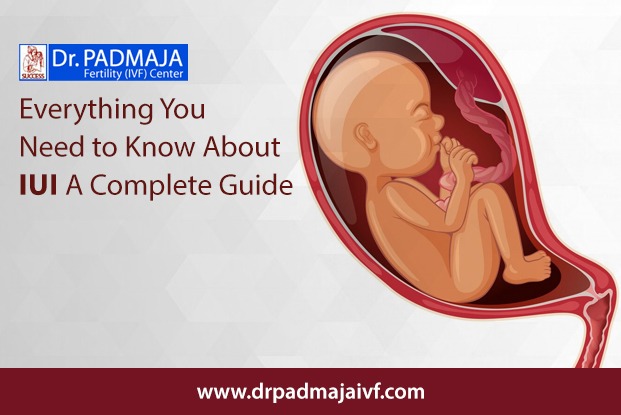When couples face difficulties in conceiving, there are several fertility treatments available to help them start their journey toward parenthood. One of the most common and less invasive options is Intrauterine Insemination, commonly known as IUI. Thanks to this method, thousands of couples have been able to experience the pleasures of motherhood. If you’re considering IUI or just curious about it, here’s everything you need to know in one simple, easy-to-understand guide.
What is IUI?
In a reproductive process known as intrauterine insemination (IUI), a woman’s uterus is loaded with specially prepared sperm during ovulation.The objective is to enhance the likelihood of conception by increasing the quantity of sperm that make it to the fallopian tubes. Couples with minor male factor infertility, cervical difficulties, ovulation challenges, or unexplained infertility are frequently advised to do IUI.
The IUI procedure typically starts with monitoring the woman’s ovulation cycle through blood tests and ultrasound. Sometimes, fertility medications may be prescribed to stimulate the ovaries. Once ovulation is detected, the partner’s sperm (or donor sperm) is collected, washed, and concentrated. This prepared sperm is then inserted into the uterus using a thin catheter—a quick and generally painless process.
Is IUI Right for You?
IUI can be a suitable option if:
You have mild male infertility (low sperm count or motility)
You’re experiencing unexplained infertility
You have issues with cervical mucus
You’re using donor sperm
Before thinking about IVF, you want to attempt a less expensive and invasive alternative.
However, IUI may not be effective for women with severe endometriosis, blocked fallopian tubes, or very low ovarian reserves. An expert in fertility can evaluate your situation and recommend the best line of action.
Success Rates and What to Expect
The age of the woman, the underlying cause of her infertility, and whether or not she uses fertility medications are some of the major variables that affect the success of IUI. Success rates typically fall between 10% and 20% per cycle. Many couples may need to try IUI multiple times before achieving pregnancy.
Choosing the Right Fertility Clinic
Finding the right fertility clinic plays a huge role in your treatment journey. If you’re looking for expert care, the best IVF center in Hyderabad offers advanced fertility treatments, compassionate support, and high success rates. One such trusted name is Dr Padmaja IVF Center, known for its personalized approach and modern technology. At the DrPadmaja Fertility Center, experienced specialists provide tailored fertility solutions, including IUI, IVF, ICSI, and donor programs.
Final Thoughts
IUI can be a great first step in fertility treatment for many couples. Compared to IVF, it is less intrusive, less expensive, and has the potential to produce encouraging outcomes. If you’re considering IUI, consult a knowledgeable fertility expert who can help you through every step of the process. For those in and around Hyderabad, Dr Padmaja IVF Center stands out as a trusted destination for compassionate and effective fertility care.
About the Author

This blog is penned by a devoted content specialist passionate about raising awareness around fertility treatments and emotional well- being. With in- depth disquisition on motifs like IVF and fertility, the thing is to give precious perceptivity for couples on their trip to parenthood.
Frequently Asked Questions (FAQs)
What is IUI (Intrauterine Insemination)?
IUI is a fertility treatment in which sperm is directly placed into a woman’s uterus during her ovulation period to improve the chances of conception. It’s commonly used when there are mild fertility issues, unexplained infertility, or when other treatments like ovulation induction are needed.
How does IUI work?
Ovarian Stimulation: The woman may be given medications to stimulate the ovaries to produce more eggs.
Monitoring: The doctor monitors the woman’s egg development through ultrasound and blood tests.
Sperm Preparation: The male partner or sperm donor provides a semen sample, which is processed and concentrated in the lab.
Insemination: During ovulation, a catheter is used to insert the prepared sperm directly into the uterus.
How long does an IUI cycle take?
The IUI procedure itself usually takes only a few minutes. However, the entire cycle, including ovulation monitoring and sperm preparation, takes around 10-14 days.
What is the success rate of IUI?
The success rate of IUI depends on various factors, such as:
The woman’s age
The cause of infertility
The quality of the sperm On average, IUI has a success rate of 10-20% per cycle, but this can vary.
How many IUI cycles are needed?
The number of cycles needed can vary depending on the individual’s fertility issues. Some women may conceive after the first or second cycle, while others may need multiple cycles. Typically, doctors recommend trying 3-6 IUI cycles before considering other fertility treatments like IVF.

